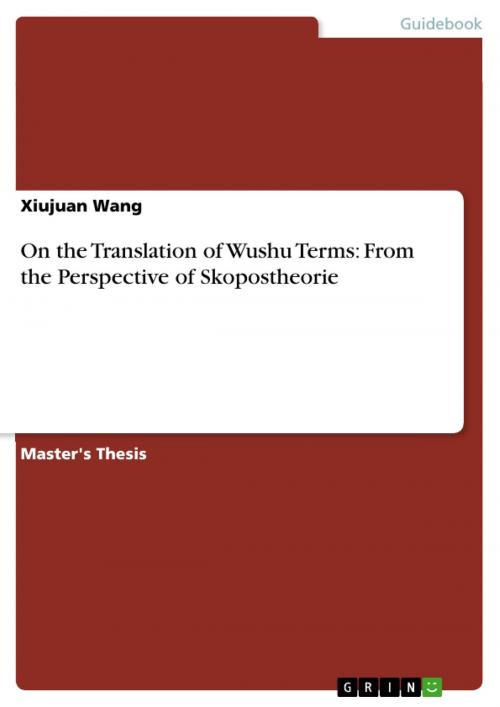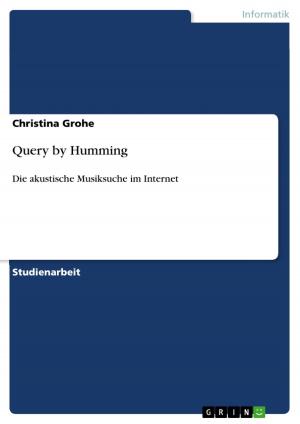On the Translation of Wushu Terms: From the Perspective of Skopostheorie
Nonfiction, Reference & Language, Education & Teaching, Counseling & Guidance| Author: | Xiujuan Wang | ISBN: | 9783668040946 |
| Publisher: | GRIN Verlag | Publication: | September 4, 2015 |
| Imprint: | GRIN Verlag | Language: | English |
| Author: | Xiujuan Wang |
| ISBN: | 9783668040946 |
| Publisher: | GRIN Verlag |
| Publication: | September 4, 2015 |
| Imprint: | GRIN Verlag |
| Language: | English |
Master's Thesis from the year 2015 in the subject Guidebooks - School, Education, Pedagogy, grade: 1, Portland State University (school of education), language: English, abstract: Wushu, also known as martial arts, is one of the typical demonstrations of traditional Chinese culture. It is not only a sporting exercise but also an artistic form. The main function of Wushu is building up a sound form and meanwhile some illnesses are expected to be cured in the process. The origin can be traced back to the primitive society where wild animals outnumbered the human beings and the living condition was fairly adverse. The ancient people adopted the primitive defending skills such as beating, kicking, attacking, jumping, leaping, etc. to fend themselves. Gradually, they learned how to make weapons out of stone or wood tools and later on developed the hunting and fighting skills with bare hands and apparatus. That is the initial stage of Wushu. Wushu origins from China, but belongs to the world. It is the essence of Chinese culture, whose profound connotations are increasingly recognized and accepted by the people all over the world. Therefore, in order to promote the further communications between Chinese culture and the outer world, Wushu terms translation is of primary significance. Many scholars have done relevant researches about Wushu terms translation; however, the existing deficiency and mistranslation in the Wushu terms translation have hindered the process of Wushu's modernization and internationalization to a certain extent.
Master's Thesis from the year 2015 in the subject Guidebooks - School, Education, Pedagogy, grade: 1, Portland State University (school of education), language: English, abstract: Wushu, also known as martial arts, is one of the typical demonstrations of traditional Chinese culture. It is not only a sporting exercise but also an artistic form. The main function of Wushu is building up a sound form and meanwhile some illnesses are expected to be cured in the process. The origin can be traced back to the primitive society where wild animals outnumbered the human beings and the living condition was fairly adverse. The ancient people adopted the primitive defending skills such as beating, kicking, attacking, jumping, leaping, etc. to fend themselves. Gradually, they learned how to make weapons out of stone or wood tools and later on developed the hunting and fighting skills with bare hands and apparatus. That is the initial stage of Wushu. Wushu origins from China, but belongs to the world. It is the essence of Chinese culture, whose profound connotations are increasingly recognized and accepted by the people all over the world. Therefore, in order to promote the further communications between Chinese culture and the outer world, Wushu terms translation is of primary significance. Many scholars have done relevant researches about Wushu terms translation; however, the existing deficiency and mistranslation in the Wushu terms translation have hindered the process of Wushu's modernization and internationalization to a certain extent.















